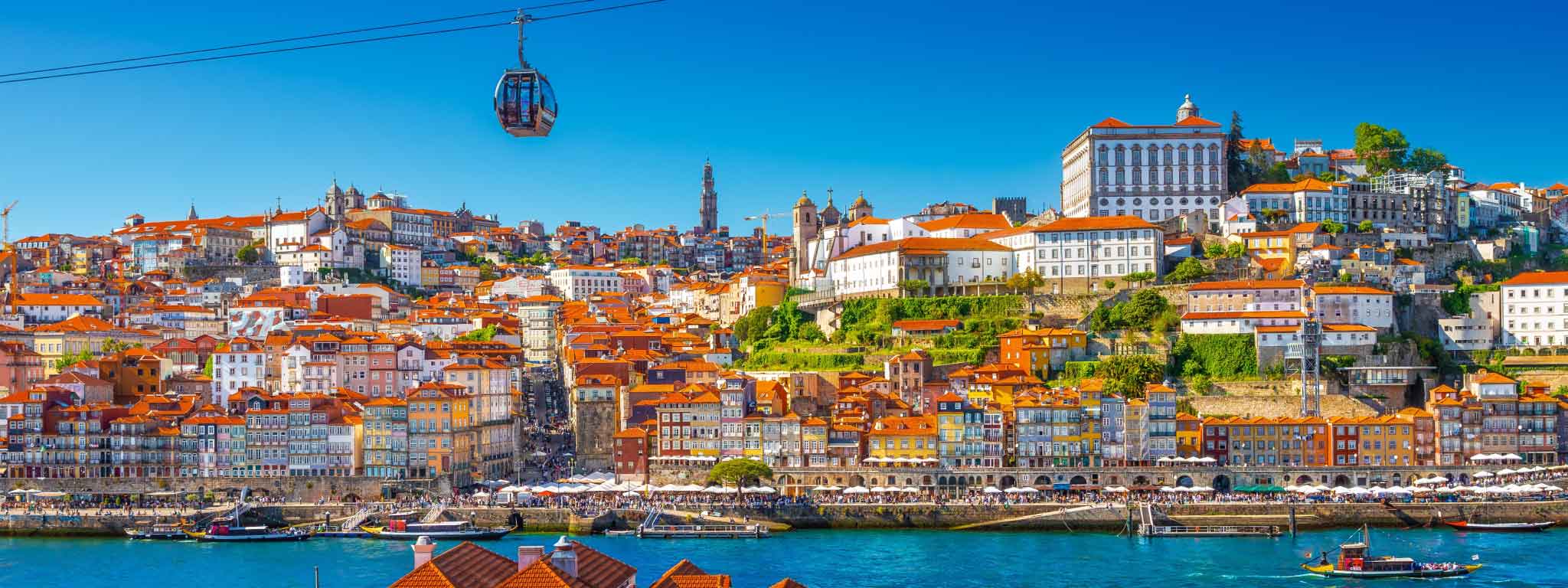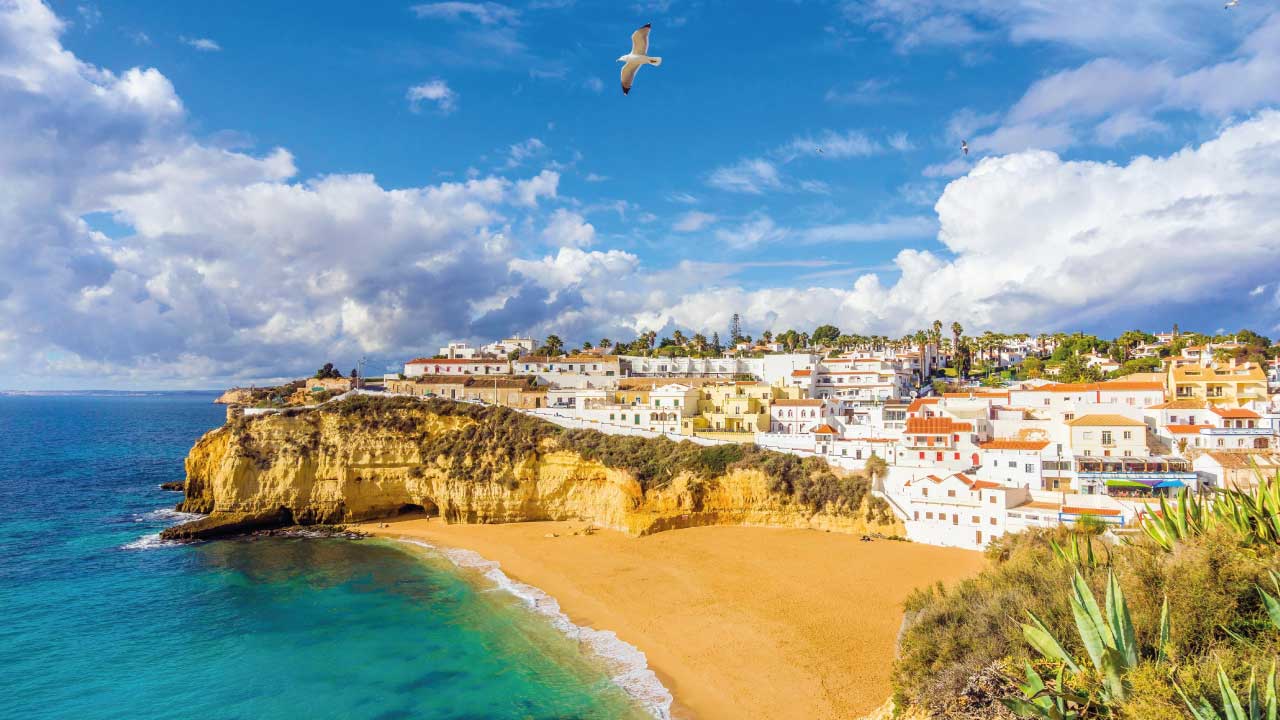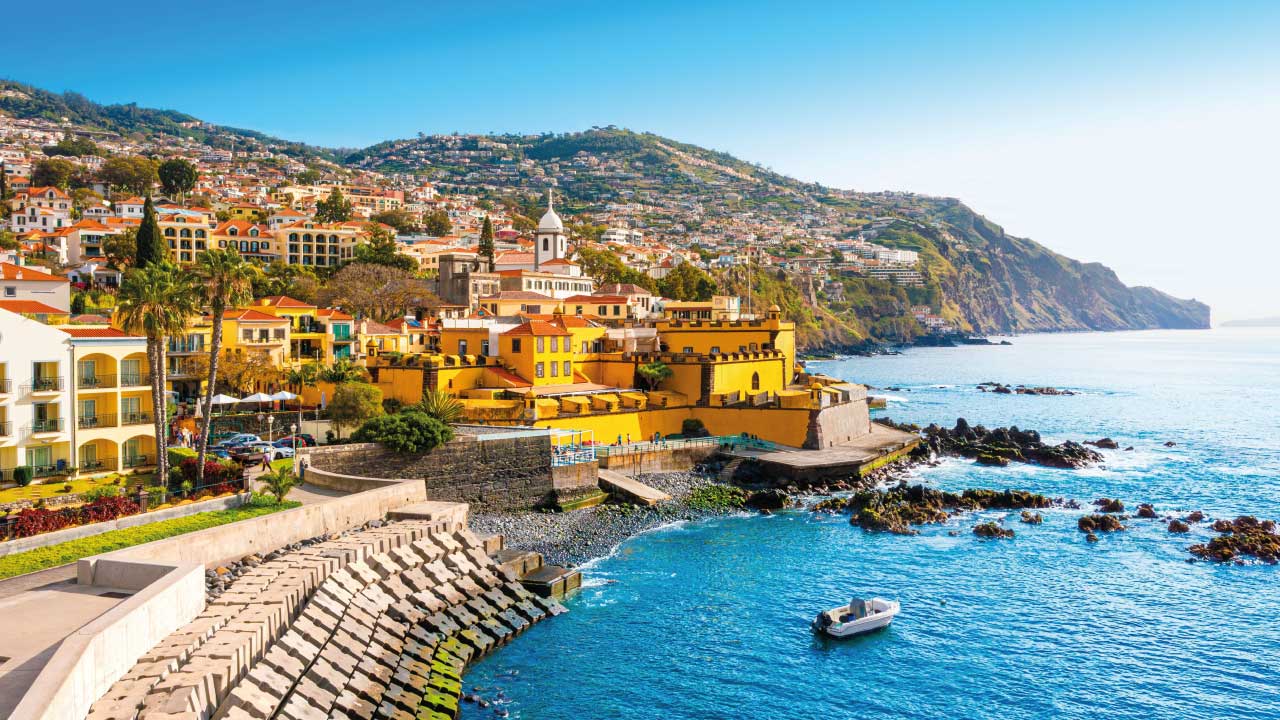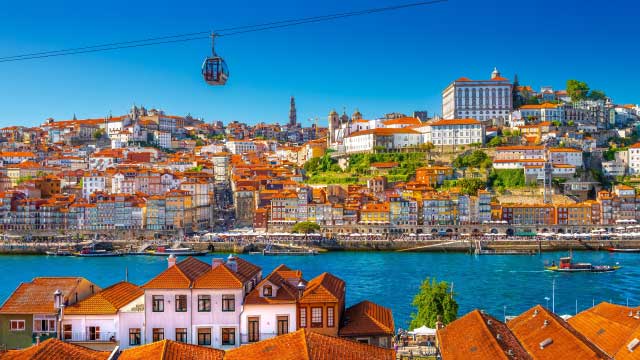finanças
Dreaming of buying property in Portugal? Here’s everything you need to know
Imagine owning a piece of paradise in Europe, where the sun shines nearly all year round. Sounds dreamy? Meet Portugal.

Portugal has become one of the hottest property markets in Europe, attracting buyers worldwide. Whether you’re searching for a vacation home, an investment property, or a new place to call home, Portugal truly offers something for everyone.
The country’s stunning coastline, rich culture, and relaxed way of living are just a few reasons people are flocking here. But navigating the property market, especially as a foreigner, can feel a bit overwhelming if you don’t know where to start. Understanding the local language, Portuguese, and the cultural norms can significantly ease your transition.
No worries, though! In this article, we’ll walk you through everything you need to know to make the process as smooth and stress-free as possible.
Need convincing? 4 reasons why investing in property in Portugal could be your best move
1. Affordable property prices: Portugal offers incredible value for money compared to other Western European countries. Whether you’re eyeing Lisbon, Porto, or the peaceful countryside, your budget stretches further here, giving you more for your investment
2. High rental yields: Portugal’s real estate market is a goldmine for investors. Cities like Lisbon, Porto, and the Algarve offer solid rental yields, especially in tourist-heavy areas, making it a great place for steady income while enjoying a fantastic lifestyle
3. Quality of life: with its mild climate, stunning beaches, and friendly locals, Portugal ranks high in quality of life. Plus, it’s one of Europe’s safest countries, making it perfect for expats and retirees
4. No restrictions for foreigners: you can buy property in Portugal just like a local — there are no restrictions for foreigners, as long as you have the necessary documentation. It's a welcoming destination for real estate investment, offering plenty of opportunities for foreign buyers.
Legal and financial considerations
Legal requirements and documentation
Before searching for your dream property, you need to take a few key legal steps. The most important is getting a NIF (Número de Identificação Fiscal), or Portuguese tax number, which is required for all property transactions. To obtain a NIF, you must visit a local tax office with your passport and proof of address. You’ll also need to provide proof of identity, proof of address, and other documents that vary depending on your nationality and financial situation.
Financing options and mortgages
Portugal offers mortgage options for foreign buyers, although the terms can vary depending on your residency status. For non-residents, banks typically offer a loan-to-value ratio of 65% to 75%, meaning you’ll need a larger deposit than local buyers.
If you're under 35, there’s even better news: Portugal offers a State-backed guarantee that can finance up to 100% of your property purchase, making it an excellent opportunity for younger buyers looking to enter the market with fewer barriers.
Just a tip: you can also use a mortgage simulator at local banks to get a good idea of how much you could borrow based on your income and financial situation - this can help you better plan your property search.
Taxes, fees, and additional costs of buying a property in Portugal
Be sure to budget for these additional costs when buying property:
- IMT (Property Transfer Tax): ranges from 0% to 8%, depending on the price and location of the property
- Stamp Duty: a flat rate of 0.8% of the purchase price
- Notary and Registration Fees: these fees generally amount to 1.5% to 2% of the property’s value
- Other costs:
- Lawyer fees: typically around 1% of the property price
- Property surveys: are often recommended, especially if you're buying an older property.

How to find the perfect property
11 amazing places to invest and live your best life
Portugal is a country of endless possibilities, with each region offering its own unique character that will make you feel at home, whether looking for coastal living, a cultural hotspot, or tranquil countryside.
1. Lisbon: the heart and soul of Portugal. Lisbon is where history meets modern life. With its vibrant social scene, rich culture, and excellent infrastructure, it’s the perfect place to live if you want to be right in the action yet still surrounded by old-world charm
2. Cascais: just a short drive from Lisbon, Cascais is a charming coastal town known for its elegance and beautiful beaches. It’s particularly loved by luxury buyers and ex-pats who enjoy a high quality of life with a relaxed seaside vibe
3. Porto: Porto, the city of wine and riverside views, is a rising star. Known for its famous wine cellars and picturesque Douro River views, Porto offers a diverse property market to suit all tastes – whether you’re looking for a home or an investment
4. Algarve: famous for its stunning beaches and year-round sunshine, the Algarve is a haven for those seeking a vacation home or a place to retire. Cities like Faro, Albufeira, and Lagos offer a perfect balance of relaxation, leisure, and outdoor activities
5. Silver Coast: between Lisbon and Porto, the Silver Coast is becoming a favorite for those craving a more peaceful lifestyle. With quieter beaches and an authentic Portuguese vibe, it's ideal for those who want to escape the crowds of bigger cities while still being close to all the amenities

6. Madeira: this stunning archipelago is known for its subtropical climate and incredible views. The capital, Funchal, combines cosmopolitan living with breathtaking nature, offering an exceptional quality of life and an excellent choice for luxury property seekers
7. Azores: if you're drawn to nature and tranquility, the Azores are where you’ll find peace. With volcanic islands, lush landscapes, and a slower pace of life, São Miguel and Terceira are popular among buyers looking for a serene escape
8. Alentejo: is the place for those seeking a more rural, slower pace of life. With its rolling hills, vast landscapes, and historic towns like Évora and Beja, this region offers a peaceful retreat away from the hustle and bustle of city life
9. Braga: nestled in northern Portugal, Braga is a historic city that feels like home the moment you arrive. With a rich cultural heritage, affordable living, and a family-friendly atmosphere, it’s an ideal spot for those looking to settle down in a quieter, more traditional setting
10. Coimbra: known for its university, Coimbra blends history with modern life. This calm, well-connected city offers peaceful living and convenience, perfect for those who want access to culture and amenities without the stress of a big city
11. Viana do Castelo: located on the northern coast, this beautiful city is perfect for those who want a balance of nature and city life. Its breathtaking landscapes, coastal views, and calm vibe make it an excellent place for those seeking peace and natural beauty.

Step-by-step process for buying property in Portugal
1. Get your finances in order
- Set your budget: decide how much you can afford to spend on your property
- Mortgage pre-approval: if you're financing your purchase, get pre-approved for a mortgage
- Factor in extra costs: don’t forget to include taxes, fees, and legal expenses in your budget (mentioned already above).
2. Find your property
- Start your search: browse online listings or work with a real estate agent to find properties that fit your criteria
- Visit properties: always visit the property in person before making an offer. If you can’t visit, consider sending a trusted representative
- Shortlist your favorites: narrow your choices to a few properties that meet your needs.
3. Make an offer and negotiate
- Make your offer: once you’ve found the right property, make an offer based on market value and your budget
- Negotiate terms: be prepared for negotiations, especially regarding price or conditions. It’s common to negotiate before reaching a final agreement.
4. Sign the Promissory Contract (Contrato de Promessa de Compra e Venda)
- Deposit payment: after your offer is accepted, sign the promissory contract and pay a deposit, usually 10%
- Review the contract: your lawyer will ensure all terms are fair and legal.
5. Close the deal
- Pay the remaining balance: pay the remaining amount to the seller when signing the final deed
- Sign the final deed: both buyer and seller sign the Escritura (final deed) in the presence of a notary. This legally transfers the property into your name.
That said, here's a little tip: while the buying process is pretty straightforward, working with a local real estate agent or lawyer is always a good idea. Their knowledge will make the process even smoother and help you avoid any potential pitfalls.
Special considerations for foreign buyers
Visa, residency, and legal implications
Foreigners can easily purchase property in Portugal, but if you plan to live here, you must apply for the appropriate visa.
- Golden Visa: no longer applicable for real estate investment in major cities but still valid for other assets like funds or job creation
- D7 Visa: for retirees or remote workers with a stable income
- Digital Nomad Visa: for remote workers meeting income requirements
- D2 Visa: for entrepreneurs looking to start a business in Portugal
- NIF: required to complete property transactions and other legal activities in Portugal
- Tax residency: becoming a resident means you'll be subject to Portuguese tax laws, but you can benefit from the NHR (Non-Habitual Resident) tax status.

Cultural and practical tips
Portuguese people are known for their warmth and hospitality. While traditions may vary by region, you’ll quickly find that locals are always happy to share a smile or a good story with you.
- Language: English is widely spoken, but learning basic Portuguese will enhance your experience
- Local customs: Portuguese people are known for their hospitality, and traditions vary by region
- Gastronomy: Portuguese cuisine is a treat for the senses. From fresh seafood to iconic pastéis de nata, every meal is a celebration of flavor. Be sure to indulge in local specialties and enjoy a glass of wine with your meal
- Festivals: participate in local events like Festas de São João or enjoy Fado music in Lisbon for a deeper cultural experience
- Family-oriented society: family plays a central role in Portuguese life, and social gatherings are common
- Healthcare: excellent public healthcare system; many ex-pats also choose private insurance for faster access
- Banking: set up a local bank account for easy transactions and paying bills
- Cost of living: generally affordable, but Lisbon and Porto tend to be more expensive than smaller towns and rural areas. Do some research based on your lifestyle and priorities.
Just a helpful tip: whether you decide to work with a local real estate agent, browse listings on platforms like Idealista and Imovirtual, or even visit a bank to get a better idea of what properties you can afford, having the right support can make your property search in Portugal much easier.
The information provided isn’t a substitute for consulting public or private experts in each area.



